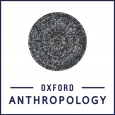School Newsletter 2018 - Projects
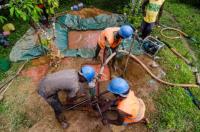
Forecasts for AnTicipatory HUManitarian action (FATHUM)
In February Dr Sara de Wit visited southeast Madagascar, together with a photographer, to study the workings of 20 water pumps and to make a reportage. The research was presented and the photography of Coen Dijkstra was exhibited during the Making a Difference: Social Sciences & Impact Conference in April. The presentation was titled ‘Water & Solidarity in Madagascar’.
Oxford Anthropology researchers have launched an international Network for Anthropologies of Forecasting Weather and Climate (AnthFOR), drawing attention to anthropologically informed work on the production, circulation, negotiation and application of weather and climate information by people, societies and organisations across the world. Anthropologists have long studied how people anticipate future events, whether using divinations, prophecies, extrapolations from historical records, local and indigenous knowledges, modelling and/or mapping. Our ethnographic attention to forecasting emphasises the entanglement of weather and climate impacts with anthropologies of knowledge, non-knowledge, anticipation and world-making. Through a series of 5 international conference panels between 2015 and 2017, and an inaugural workshop in Oxford in 2016, AnthFOR has brought together anthropologists and colleagues in other disciplines (geography, history, STS, physics) to discuss what an anthropological lens can contribute to understandings of weather and climate expertise, prediction and intervention. Members study a wide range of topics including the historical production of El Niño knowledge, the use of forecasts for humanitarian action, the provision and politics of climate services, the perception, construction and communication of flood and drought risk, data practices in weather, climate and pollution modelling, and the practical and political implications of bringing diverse forms of foreknowledge into conversation with one another.
The new AnthFOR website hosts news, events, blogs, references and other resources. For more information please contact Sophie Haines/Sara de Wit or send a message via the website contact form.
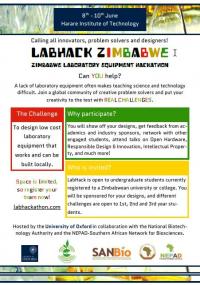
Changing Ecologies of Knowledge and Action (CEKA) update
In conjunction with the Human-Centred Computing group at the Department of Computer Science, Louise Bezuidenhout was awarded an EPSRC GCRFC grant for the project Ethical Equipment Hackathon for Improved R&D Capacity in LMIC. This project addresses a key challenge for research in low and middle-income countries, namely the scarcity of laboratory equipment. Lab Hack 2018 took place in Zimbabwe on 8-10 June at the Harare Institute of Technology.
Louise and Ola Karrar of University of Khartoum, Sudan, have developed a survey to assess the impact of international sanctions on the Sudanese scientific and academic communities, and to gather evidence of skill and equipment gaps. The findings of this survey will assist in identifying key shortages so that capacity building initiatives can be targeted and effective. It is envisioned that the results of the survey will be disseminated by the end of the year, and that the analysis would occur in the first quarter of 2018. This research has been developed in collaboration with INASP and with the support of the Africa Oxford Initiative. The survey on the impact of international sanctions on Sudanese academics has been live for 2 months and has had over 400 respondents. Ola will visit InSIS in July/August to complete the data analysis.

The PEAK Urban programme and REMINDER
The Centre on Migration, Policy and Society (COMPAS) continues its strategic programme of multi-disciplinary social scientific research and dissemination activities with a broad set of academic and non-academic users in the UK and abroad.
Director Michael Keith is leading the PEAK Urban programme, a 51-month, international, multidisciplinary programme funded by UKRI’s Global Challenge Research Fund (GCRF) involving Oxford researchers in Anthropology (COMPAS). Maths, Geography (Transport Studies Unit), and Health (George Institute), along with universities in China (Peking University), South Africa (University of Cape Town), India (Indian Institute for Human Settlements), and Colombia (EAFIT University). The programme aims to grow a new generation of interdisciplinary urbanists and a network of smarter cities working together across Africa, China, India, Colombia, and the UK.
The REMINDER project has begun to publish research results, with working papers on the fiscal effects of EU migration, comparing perceptions of the impact of migration across EU member states, and looking at media practices in the EU-10 and EU-15 member states. As background material, the project has also produced literature reviews in key areas of research, including mobility data, migrants in the home care industry, determinants of migration flows, media effects on attitudes toward migration and media discourses on mobility.
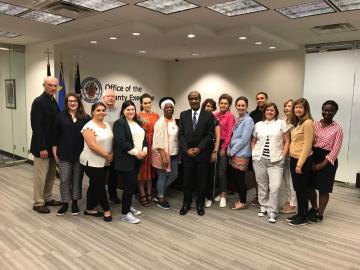
Inclusive Cities – US exchange with UK city leaders
The Inclusive Cities programme, led by the Global Exchange on Migration and Diversity is a knowledge exchange initiative working with representatives from 6 UK city administrations to create a step change in their approach to the inclusion of newcomers in the city. In May 2018, delegates from each of the participating cities travelled to Montgomery County, Maryland and Pittsburgh, Pennsylvania where they met with city officials, local leaders, and community organisations as part of the programme led by the Global Exchange and hosted by Welcoming America, an NGO working to build a movement of welcoming communities throughout the United States. The delegates included senior representatives from Bristol, Cardiff, Glasgow, Liverpool, London, and Peterborough. The exchange focused on learning from innovative practice across a wide range of areas, including community organising at the neighbourhood level, new ways to design and deliver English language provision, and how economic regeneration can support inclusive growth.
Inclusive Cities builds on research into the dynamics of integration at the Global Exchange, the knowledge exchange arm of the Centre on Migration Policy and Society (COMPAS) which emphasises the local nature of integration and the importance of recognising integration as a shared responsibility and a two-way process. Each city has committed to developing an action plan following the exchange which will set out the city-wide approach to inclusion and have appointed a Taskforce of external partners to advise the project and support with its delivery. The project is supported by Paul Hamlyn Foundation and demonstrates how COMPAS research is being translated into impact at the local level.
The Migration Observatory
In mid April 2018, the Migration Observatory published a report arguing that substantial numbers of UK residents could be at risk of losing their legal status after Brexit, with particularly vulnerable groups including victims of domestic abuse, elderly people, and children. At the same time, the Migration Observatory supplied figures on Commonwealth citizens in the UK to journalists, which provided background for a spate of stories on the Windrush generation of migrants. These two issues converged when researchers and advocacy groups explicitly tied the Windrush generation to EU migrants who could get caught up in similar difficulties in the future.
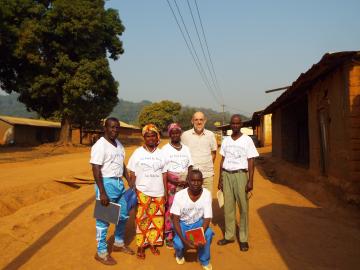
The local dialect of Mambila, Cameroon
David Zeitlyn and Bruce Connell, a linguist from York University, Toronto, are working with a team from Somie village in Cameroon to write a dictionary in the local dialect of Mambila. The team Tshirts say ‘Bɔ̀ kwé ju Bà bɔ̀ ká Ndeba’: Those who dig into the Mambila language in Ndeba (Somie).
The photo was taken when they were in Somie in January 2018.

